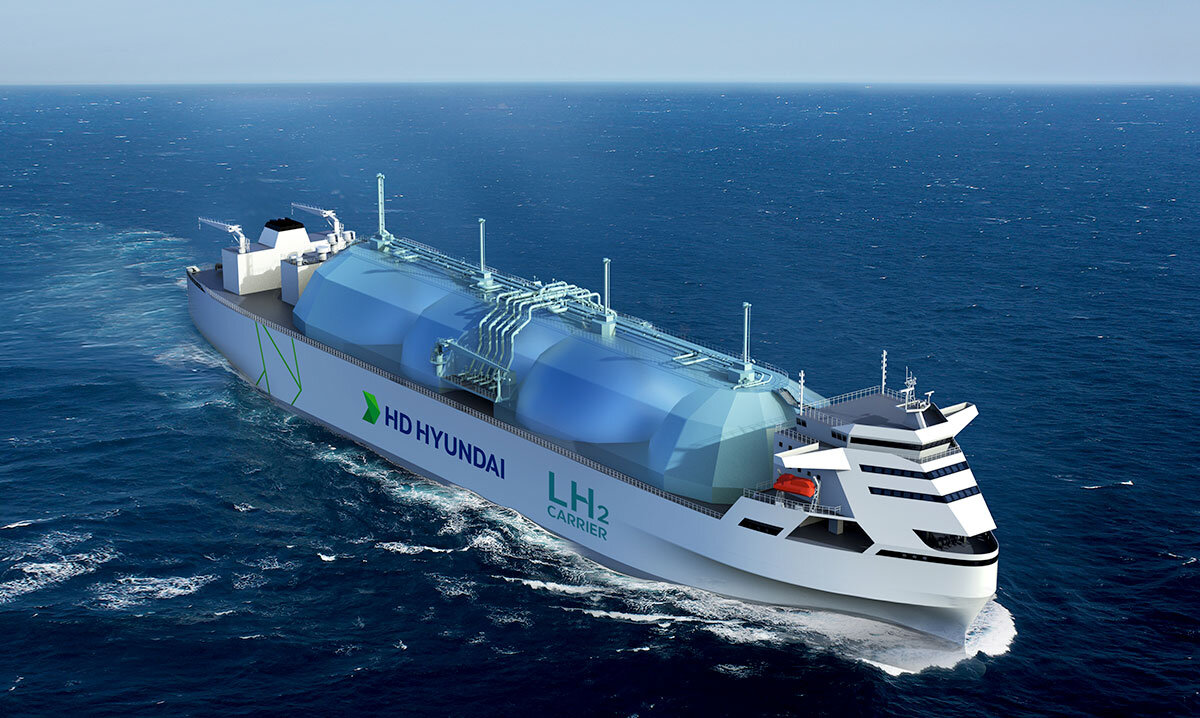Japan’s shipping firm MOL has joined forces with Australia’s LNG player Woodside, South Korea’s HD Korea Shipbuilding and Offshore Engineering, and shipping company Hyundai Glovis to study shipping solutions for the bulk transport of liquefied hydrogen (LH2).
MOL, the operator of a huge LNG carrier fleet, said in a statement on Wendesday it has signed a non-binding memorandum of understanding with the three firms, which have been working on the development of shipping solutions to enable bulk marine transportation of liquefied hydrogen since 2022.
“Woodside, HD KSOE, and Hyundai Glovis have evaluated MOL’s expertise gained through decades of experience in transporting liquefied natural gas (LNG) and its various efforts to address decarbonization issues, and approached the company to cooperate in this study, leading to the conclusion of the MoU,” MOL said.
In this project, the companies will study the technology, safety, construction, operation, and economics of a carrier with 80,000 cbm tank capacity, with the aim of establishing a liquefied hydrogen supply chain in Asia and other regions, according to MOL.
If a project results from the memorandum, the parties’ aspiration is to have the vessel built and in operation by 2030, it said.
Woodside would be responsible for producing hydrogen and storing it at loading and discharging ports, while HD KSOE would design and build the vessel.
Moreover, Hyundai Glovis and MOL would be responsible for providing ship operational input into the vessel design, including logistics, propulsion, storage, and cargo handling.
MOL said the liquefied hydrogen carrier would, under its concept design, use hydrogen as its main fuel.
This is expected to “significantly” reduce CO2 emissions during operation, the firm said.

